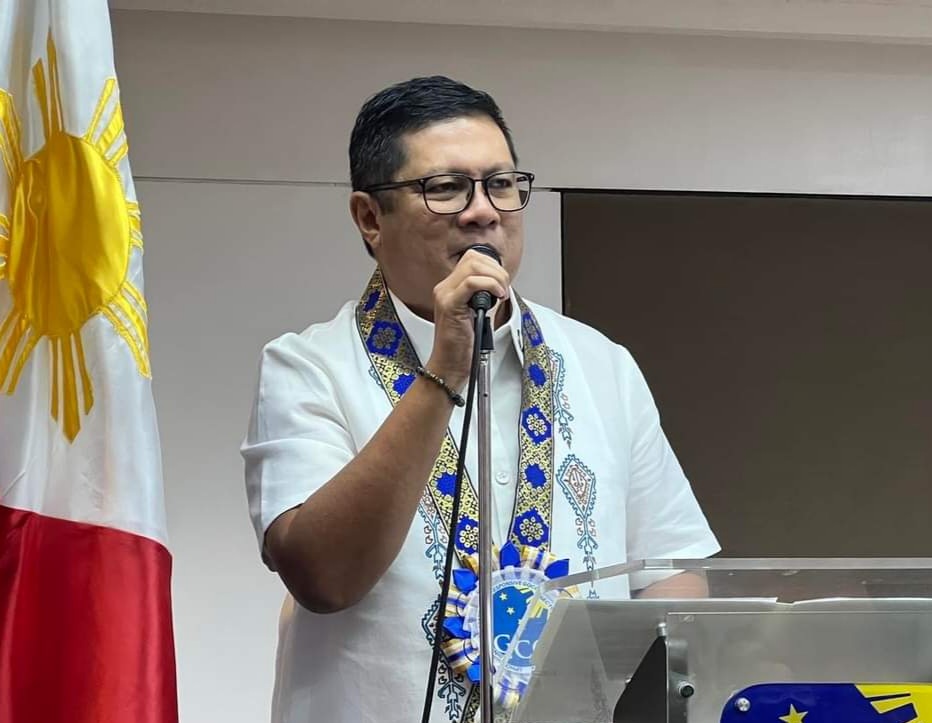'Dapat galingan': Yamsuan wants cops to keep up with DOJ's updated investigation rules
At A Glance
- The Philippine National Police (PNP) must strengthen its training and continuing education programs for police officers to ensure that they can keep up with the stringent guidelines on evidence gathering and case build-up set by the Department of Justice (DOJ), Bicol Saro Party-list Rep. Brian Raymund Yamsuan said.
 Bicol Saro Party-list Rep. Brian Yamsuan (Facebook)
Bicol Saro Party-list Rep. Brian Yamsuan (Facebook)
By ELLSON QUISMORIO
The Philippine National Police (PNP) must strengthen its training and continuing education programs for police officers to ensure that they can keep up with the stringent guidelines on evidence gathering and case build-up set by the Department of Justice (DOJ).
Thus, said Bicol Saro Party-list Rep. Brian Raymund Yamsuan on Tuesday, in light of the DOJ's updated rules on criminal investigations.
The DOJ’s goal in issuing this new set of rules, which is to ensure that only “winnable” cases are filed in court, cannot be accomplished if PNP personnel assigned to secure crime scenes or conduct law enforcement operations do not follow police operational procedures, Yamsuan said.
“Since the DOJ’s updated criminal investigation guidelines now set a higher standard in determining the quantum of evidence needed to file cases, police officers should make sure that the evidence they have secured, gathered and processed are not excluded by the courts due to improper handling and other technicalities,” said the solon, a former assistant secretary of the Department of the Interior and Local Government (DILG).
“Kaya naman dapat ay nakatuon ang pansin ng PNP sa patuloy na edukasyon at training ng kapulisan para matiyak na alam at sinusunod nila ang police operational procedures. Hindi maipapatupad ng DOJ ang mga reporma sa pag-iimbestiga ng criminal cases at makakapagpanalo ng mga kaso sa korte kung hindi nito katuwang ang PNP,” he added.
(That is why the PNP should focus its attention on the continuing education and training of police personnel to ensure that they are aware of, and, follow police operational procedures. The DOJ cannot implement the reforms it has set in the investigation of criminal cases and win cases in court without the PNP as its partner.)
Under the 2024 DOJ-National Prosecution Service (NPS) Rules on Preliminary Investigation and Inquest Proceedings, state prosecutors are now empowered to take the lead in criminal probes to ensure proper and sufficient case buildup before filing cases in court.
Yamsuan lauded DOJ Secretary Jesus Crispin Remulla for instituting reforms in the country’s justice system.
“These reforms under the able leadership of Secretary Remulla will help the judiciary reduce its mounting case backlogs and aid corrections officials in decongesting the country’s overcrowded jail facilities,” noted the neophyte congressman.
President Marcos himself is hopeful that the DOJ’s new criminal investigation procedures would prevent the filing of harassment suits and weak cases in court.
Yamsuan shared the President’s optimism, but said the PNP should complement the implementation of these DOJ-led reforms by ensuring the continuing education and training of police officers.
For fiscal year 2024, the PNP has allocated a total of P1.26 billion for the education and training of its uniformed personnel.
Yamsuan cited a 2023 report quoting the DOJ, which said that up 80 percent of cases filed by prosecutors are dismissed by the courts because of lack of documentation, weak evidence and other technicalities.
As for cases filed by investigators before the DOJ or state prosecutors, about 90 to 95 percent are often thrown out.
According to a statement last year by then-acting PNP chief Major General Emmanuel Peralta, the PNP’s conviction rate was only 21.4 percent, which reflects sloppy police work in gathering and handling evidence.